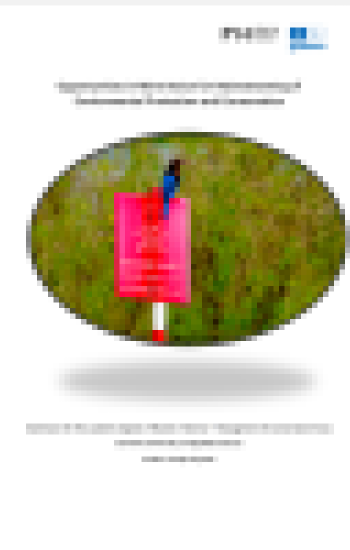
Opportunities in Mine Action for Mainstreaming of Environmental Protection and Conservation
This paper explores opportunities in the mine action sector for the mainstreaming of environmental protection and conservation. The paper presents an argument for evidence based environmental activities based on a holistic understanding of the environmental impacts of landmines and other explosive ordnance over time. Accordingly, a framework is drawn from the ‘warfare ecology’ field of study to structure an understanding of impacts as they occur throughout the entire lifecycle of war, incorporating the preparatory phase, wartime phase and post-war phase. Opportunities identified demonstrate the utility of moving beyond a ‘do no harm’ approach in order to adequately identify environmental impacts both within, and beyond minefield boundaries, and effectively address them by facilitating research and conservation efforts, accessing broader funding opportunities, and aligning mine action activities with the global biodiversity and development agendas.
Dr Francis Vorhies, AWEI Director, co-supervised this study. It demonstrates the role that sustainable use of wild species can play in aligning livelihoods and landscapes in a landmine removal operation.
Chrystie, Emily. 2023. Opportunities in Mine Action for Mainstreaming of Environmental Protection and Conservation. MS thesis, Carinthia University of Applied Sciences.
-
Emily Crystie
We support the free flow of information. Please share:
More content
-

What Foot and Mouth Disease-free means for South Africa’s game meat trade
Ms Lydia Daring Bhebe…Explore the latest developments in South African provinces achieving and maintaining Foot and Mouth Disease (FMD) free status…
Articles -

The world wildlife trade regulator is 50 – here’s what has worked and what needs to change
Daniel Challender…Most countries implement Cites, the Convention on International Trade in Endangered Species of Wild Fauna and Flora as…Articles -

Enabling Sustainable Wildlife Trade
Prof Francis VorhiesEnabling sustainable wildlife trade is a key policy measure for growing Africa's wildlife economy. In this respect, CITES…
Articles -

Has CITES become too complicated to be effective?
Prof Francis VorhiesGovernments agreed to the text of CITES in the 1970s, which is quite straightforward. However, the agreement’s implementation…
Articles -

From poachers to providers: Can Africa's wild meat market save wildlife?
Dr Wiseman NdlovuHave you ever considered how wild meat could be more than just a cultural staple but also a…
Articles -

As a fellow of the African Wildlife Economy Institute (AWEI), I am excited to attend the upcoming 3rd…
Articles -

A theory of change to improve conservation outcomes through CITES
Dr Michael 't Sas-Rolfes…Here we articulate the implied theory of change (ToC) underpinning the design and operation of CITES (Convention on...
2025Research -

Wild Meat Value Chain Integration Systems: Opportunities for Value Chain Formalisation and Scaling in Africa
Dr Wiseman Ndlovu…Establishing a legal, safe and sustainable wild meat sector promises to potentially reduce demand for illegally sourced meat...
2025Research -

AWEI's 2024 Wildlife Economy Dialogue Series
Ms Emily TaylorRediscover 2024: A year of insight and inspiration
In 2024, AWEI proudly hosted three ground-breaking dialogue series in…
Articles
Get updates by email
Through impactful research, stakeholder engagement, and professional development, AWEI is supporting the wildlife economy across Africa. Please subscribe for occasional updates on our work and forthcoming events.
Sign up for a quarterly dose of AWEI insights
In a complex and changing world, AWEI generates strategic ideas, conducts independent analysis on wildlife economies, and collaborates with global scholar-practitioners to provide training and expertise for biodiversity conservation, climate resilience, and inclusive economic opportunities in Africa.
